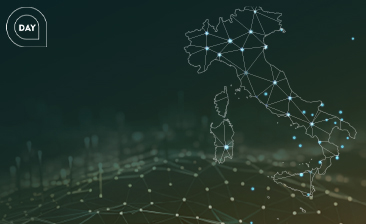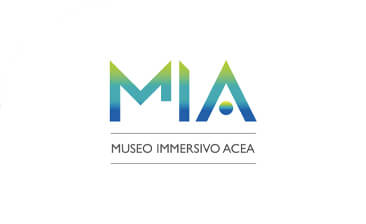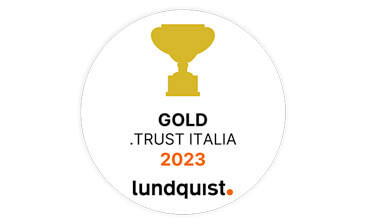Starting with Acea in Rome, the test project for the first intelligent electricity grid in Europe makes the client a partner and, using blockchain technology, aims to change how we manage consumption. Acea least the “Italian pilot” with help from RSE, Enea, Siemens, Apio and Engineering and with the involvement of twelve enterprises from Germany, Belgium, Greece and Italy.
Today, at the Platone ("PLATform for Operation of Distribution Networks") MidTerm conference, the “Go Live” was announced for the European project which aims to revolutionise electricity consumption and optimise network operation. The programme was activated for the first time as a test on Rome’s distribution network and is already active for the first ten customers.
The objective of Platone is to develop and test a state of the art technological solution which can enable energy flexibility mechanisms within an open and inclusive market. The project takes on the ambitious challenge launched by the European Union — to meet the growing need to alleviate in the short and long terms network overloads, due to the ever-greater penetration by variable output renewable energy sources and heating, cooling and electromobility systems.
With a cross-border collaboration comprising twelve public and private sector partners (Acea Energia, Areti, Apio, Avacon, BAUM, Engineering, E.DSO, Hedno, Athens Polytechnic NTUA, RSE - Ricerca Sul Sistema Energetico, Siemens) from Italy, Greece, Belgium and Germany, coordinated by RWTH Aachen University in Aachen, Germany, the project is now in its second of a total of four years. The solutions identified by Platone will be shared with the scientific community, the major sector stakeholders and end users and implemented in all participating countries.
Through Areti and Acea Energia and together with Siemens, Engineering and the start-up Apio, Acea will coordinate the “Italian pilot” which is underway in Rome, thus becoming the first key actor in the path towards a new energy market model. Areti’s pilot, via the development of an innovative technological architecture, built around the application of blockchain, will be able to develop a new network operation model based on flexibility. This solution will allow users to actively participate in the optimised network operation by becoming partners who offers flexibility services and contribute to guaranteeing the energy supply/demand balance to the benefit of the entire community. As reseller, Acea Energia will aggregate the flexibility services offered by its customers, proposing them to the distributor. The revenue deriving from these sales will then be shared between the aggregator and the consumer. Platone is therefore promoting a new network management approach to optimise its operation and enhance its stability and resilience, also in the case of large renewable energy outputs. This is thanks to a combination of flexibility measures, such as storage, domotic technologies and automation.
Thanks to an agreement between Areti and Enea (Italian National Agency for New Technologies, Energy and Sustainable Economic Development), this innovative model was implemented starting July 2021 for the users of ten customers in the Roma Eur, Centocelle and Villaggio Olimpico areas — which already partner with Enea on energy efficiency projects — and at the Smart Village at Enea’s Cassaccia Research Centre. Enea has also made state-of-the-art platforms and solutions for efficient energy management available, as well as dedicated skills and infrastructure, including the “smart building”, a high-tech building, equipped with a photovoltaic plant, storage battery and an “intelligent” energy management system which is able to reduce the need for exchange with the electrical grid, thereby decreasing the costs to the end user. Further tests will concern the electric vehicle charging stations supplied to Areti, as well as Acea’s Tor Di Valle production plant and other residential customers in the area of Rome equipped with photovoltaic facilities and storage systems.
The Italian pilot will continue for the next two years, with increasing efficiency and involving a continually growing number of customers.
Under the project, the Siemens team in Italy has made available skills and experience accumulated over the years in the development of more effective methods of interaction between the transmission system operator (TSO) and the distribution system operator (DSO), functional to the exchange of information for monitoring and acquiring ancillary services (strategic for balancing network load, regulating voltage and managing congestion) for new distributed energy resources interconnected with the distribution network.
RSE —which has always developed research in the electricity/energy sector, in collaboration with the central and local public administration system, the production system, and with SME and consumer associations — has been involved since the creation of the consortium and has always promoted the initiative. It is also responsible for the project’s Work Package, which provides a scalability duplicability assessment for the test solutions for the partners in the other three countries. The tests which RSE is conducting in this regard provide a solid base on which to establish the added value of the technologies used and their application in European countries — useful solutions for the authorities in defining market models and rules which, on one hand, let end users contribute to the energy market and, on the other, will make it possible to promote the evolution of the relationship between electricity producers and distributors.
Discover the latest news and initiatives of the Acea Group

Acea for World Energy Saving Day

Visit the virtual museum about the history of the Acea Group

The channel for the commercial requests on land urbanisation

Acea turns the spotlight on the Rome Film Festival 2023

Acea is in the "Gold class" in the .trust research

Read more about our culture of inclusiveness